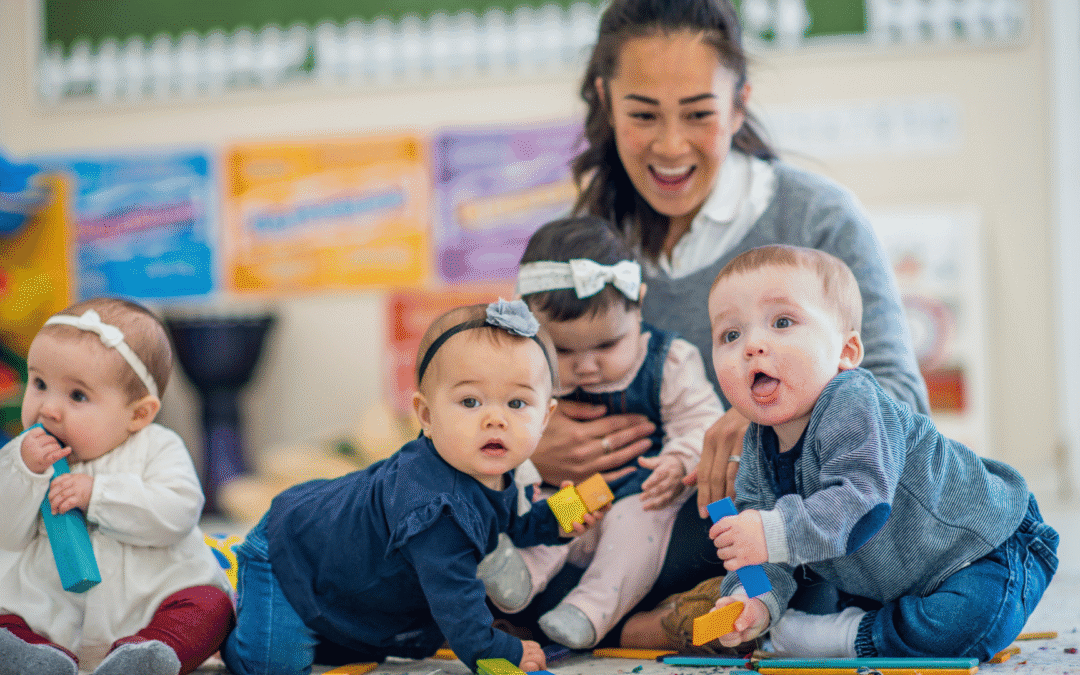When we think about early education, many parents picture worksheets and structured lessons but the heart of early childhood education is often much simpler: play. Learning through play is not just fun for children it is how they explore the world, develop essential skills, and a build a lifelong love of learning.
Preschool and daycare programs that prioritize play provide children with opportunities to be curious, creative and confident. Through games, pretend scenarios, and hands-on activities, children grow academically, socially, and emotionally all while having fun.
Why Play is Essential
Play is more than just entertainment. In fact, research in child development shows that play:
- Encourages problem-solving and critical thinking.
- Builds social-emotional skills like sharing, empathy, and cooperation.
- Strengthens language and communication through storytelling and conversation.
- Enhances fine and gross motor skills through hands-on activities and movement.
- Sparks creativity and imagination, laying the groundwork for innovation.
When children engage in playful learning, they are actively processing information, experimenting with ideas, and learning about cause and effect. These experiences prepare them for future academic success, making play an essential part of preschool and daycare curricula.
How Children Learn Through Play
1. Pretend Play
When children act our roles like playing “chef” or “teacher” they practice social skills, language, and problem-solving. Pretend play allows them to understand the world around them while expressing creativity and imagination.
2. Sensory and Hands-On Activities
Building with blocks, exploring sand and water, or engaging in art projects strengthens fine motor skills and encourages experimentation. Sensory play also helps children make connections between abstract concepts and real-world experiences.
3. Outdoor and Physical Play
Climbing, running, and exploring nature support gross motor development and overall health. Outdoor play also provides opportunities for teamwork, negotiation, and observation, fostering both physical and social growth.
4. Structured Games and Challenges
Simple board games, puzzles, and matching activities teach children about rules, patience and problem-solving. These games introduce concepts like numbers, letters, and patterns in a playful, engaging way.
Tips for Encouraging Play at Home
Parents can extend the benefits of play beyond the classroom by:
- Setting aside dedicated time for free play each day.
- Rotating toys and materials to spark curiosity and creativity.
- Engaging in play alongside your child to model social skills and vocabulary.
- Encouraging outdoor exploration and nature-based activities.
- Asking open-ended questions like “What happens if….?” To foster critical thinking.
By embracing play at home, families reinforce the learning that happens at preschool and daycare and strengthen the parent-child bond.
Choosing a Preschool or Daycare That Values Play
When exploring preschools and daycares, look for programs that:
- Prioritize hands-on, child-centered learning.
- Offer a balance of guided activities and free play.
- Provide safe spaces for exploration, both indoors and outdoors.
- Encourage creativity, imagination, and problem-solving.
A preschool or daycare that values play ensures children are not only learning academics but also developing confidence, curiosity, and joy in discovery.
Play is much more than fun; it is the foundation of learning. By choosing a preschool or daycare that integrates playful learning into everyday, families give their children the opportunity to explore, grow, and thrive. Children who learn through play develop essential skills, build meaningful relationships, and gain a love of learning that lasts a lifetime.
We celebrate the power of play. Our programs combine engaging activities, imaginative experiences, and supportive guidance to help every child grow socially, emotionally, and academically. We invite you to visit us, explore our classrooms, and see how playful learning can ignite your child’s curiosity and creativity.

